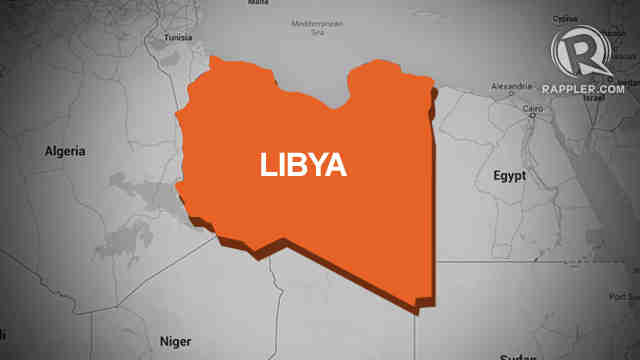
TRIPOLI, Libya – A Libyan unity government was formed Tuesday, January 19, under a UN-brokered deal aimed at ending years of bloodshed, but it was unclear whether the leaders have wide support from the warring sides.
World powers are appealing to the country's rival parliaments to back the new administration to break political paralysis that has provided fertile ground for jihadists and people-smugglers.
But less than half of the members of the two parliaments signed up to the UN-sponsored agreement last month.
The unity government, headed by Fayez al-Sarraj, who was named prime minister-designate under the UN-sponsored accord, comprises 32 ministers, the administration announced on its Facebook page.
Sarraj, a businessman in his 50s from the capital Tripoli, holds degrees in business management and architecture and was a member of a committee that paved the way to national dialogue in Libya.
UN envoy Martin Kobler urged the country's internationally recognised parliament, the House of Representatives, to "promptly convene" and endorse the unity government.
Two-thirds of the legislature must approve the new administration within 10 days so that it can begin carrying out its work.
There was no immediate reaction from the two parliaments.
Libya has been in chaos since the 2011 ouster of longtime dictator Moamer Kadhafi.
A militia alliance including Islamists overran Tripoli in August 2014, establishing its own government and parliament and causing the internationally recognised administration to flee to the country's remote east.
On December 17, under UN guidance, around 80 of 188 lawmakers from Libya's internationally recognised parliament and 50 of 136 members of the Tripoli-based General National Congress signed the unity government deal.
'Game changer'
Analysts say the unity government is unlikely to be quickly embraced by controversial army chief General Khalifa Haftar, who has already said he was unhappy with the UN deal.
"The main question is whether this government is supported by Haftar," said Mattia Toaldo of the European Council on Foreign Relations. "Reading the name of the defence minister it seems not to be the case."
The key defence portfolio was given to Colonel Al-Mahdi al-Barghathi, a prominent military figure who is popular in eastern Libya, from where he hails, and in the west where the GNC is based.
Barghathi is seen as a rival of Haftar although they fought side by side in Operation Dignity, an offensive led by Haftar against Islamists in second city Benghazi.
His selection to be defence minister could help to win the support of the GNC -- which opposes Haftar -- for the unity government, according to analysts.
"The name of the defence minister could be a game changer in shifting the position of some of the people in Tripoli," said Toaldo.
Other key nominations are Al-Aref al-Khoja, as the next interior minister and Marwan Abusrewil as the future foreign minister.
Fighting ISIS 'priority'
The power-sharing deal has been given added urgency by fears that the Islamic State (ISIS) jihadist group, under pressure in Syria and Iraq, is building a new stronghold on Europe's doorstep.
France and Italy urged the opposing parties Tuesday to seize the chance to bring stability to the country.
European Union foreign policy chief Federica Mogherini said Libya was at a "critical juncture" and urged all sides to endorse the unity government quickly.
"It is now for the House of Representatives and its presidency to show the same spirit of compromise and sense of leadership, and promptly convene to endorse the proposed cabinet," she said.
"Only a united Libyan government, supported by all its citizens, will be able to end political divisions, defeat terrorism, and address the numerous security, humanitarian and economic challenges the country faces," she added.
British ambassador Peter Millet echoed Mogherini.
"Action against Daesh a priority," he said on Twitter, using an Arabic acronym for ISIS.
The group first appeared in Libya in 2014 and has since claimed responsibility for beheadings and suicide bombings.
It has established a stronghold in the coastal city of Sirte, Kadhafi's hometown, and is reported to have at least 3,000 fighters in Libya.
In recent weeks its fighters have pushed east towards the so-called "oil crescent" along Libya's northern coast, attacking oil facilities. – Rim Taher, AFP/Rappler.com